Reflection on International Language Symposium by Nazan Özçınar Sırel
- Conference Title: International Language Symposium. CA Institute of Languages. BRNO, 1-3 June, 2017
- Presentation Title: Enhancing Lifelong Learning by Using NLP in the ELT Classroom
- Presenter(s): Nazan Özçınar Sırel
- Brief information about the conference (location, the theme(s), keynote speaker(s), the length, etc.):
The conference venue was Brno, a small town in the Czech Republic. It was organised by the CA Institute of Languages which is an accredited organisation of EAQUALS. Although it was their first symposium, it was organised in a very professional way. The symposium started on 31st May with a reception dinner at the institute and continued with the plenaries on 1st June which were all very educative and fruitful. The next two days continued with workshops and presentations. Some of the keynote speakers included: Stephen Krashen, Jacquelin Kassteen, Jason Fritze, Ben Beaumont, Philip Kerr, Hugh Dellar, Jeremy Harmer, Marek Kiczkowiak and more! Below a picture of Jeremey Harmer while giving his plenary entitled: To Begin at the Beginning.
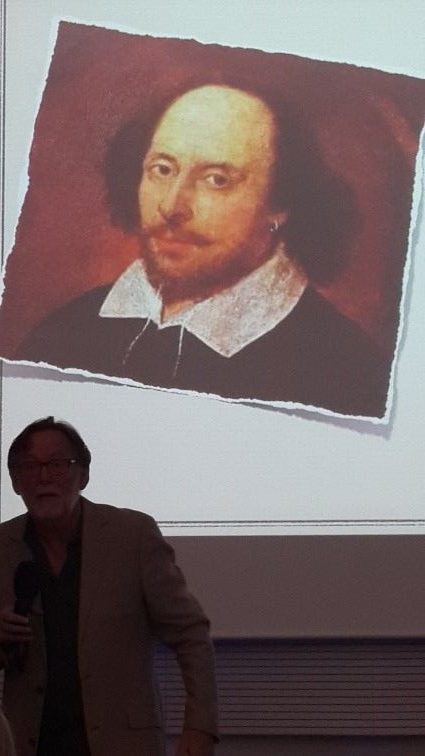
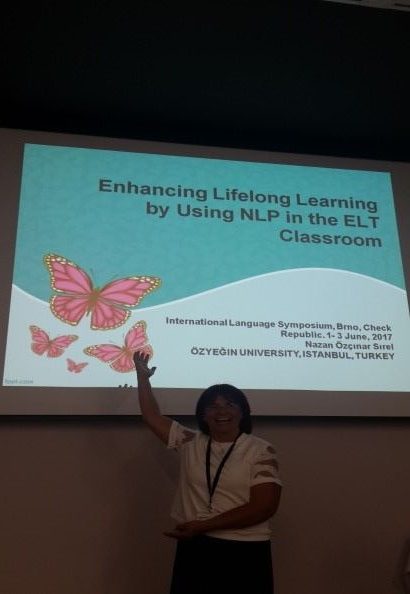
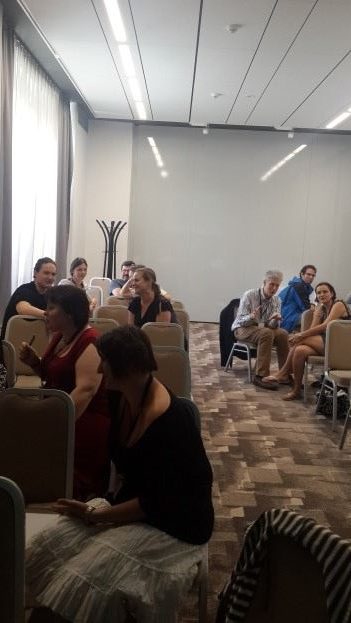
Brief information about my presentation:
My presentation took place on 2nd June, Friday from 12.30-13.30. There were 16 participants with great interest. Some of the participants had never heard of the word NLP which is one of the reasons that made Prof. Stephen Krashen attend my workshop. I received very good feedback from participants who were eager to take part in my workshop and who told me they had learned what NLP was after the workshop. It was a very interactive workshop which contained theory and practice about NLP.
- “Highlights from Conference”
As mentioned before, the first day of the symposium consisted of all the plenaries which made it possible for the participants to get all the theoretical information regarding ELT followed by all the workshops and presentations on the following two days. I would like to give some brief information about some of the plenaries:
PLENARY 1: Jeremy Harmer’s plenary: To Begin at the Beginning
Jeremy gave a very interesting talk on how to begin a symposium because he was the first plenary of the symposium. He started with a question: How do you begin a lesson / a conference / a talk or a symposium? He said there are various options:
- Housekeeping: starting with taking the register
- Shock and awe: starting with a test
- Hit the ground running: open your books to page…
- Firecracker: warmers / icebreakers / settlers(silence) / start with a question (what did you have for breakfast)
- Set the scene: today I will talk about…. Here you talk about your aims: SMART. S stands for SPECIFIC / MEASURABLE / ACHIEVABLE / REALISTIC / TIMED
Jeremy also mentioned about Scott Thornbury’s Blog: An A-Z of ELT and advised us to read the blog: Bring Students into the Class.
PLENAY 2: Another Plenary was Huw Jarwis’ one on: From Digital Self & Students to Professional Self & Teachers.
At the beginning of his plenary he mentioned about certain acronyms:
PBM: Paper based Medium
DBM: Digital Based Medium
PPP: Presentation Practice Production
CALL: Computer Assisted Language Learning
MALL: Mobile Assisted Language Learning
TBLT: Task Based Language Learning
CPD: Continuing Professional Development
MALU: Mobile Assisted Language Use → using a variety of mobile devices in order to access / communicate information for their academic purposes.
He said that we can talk about Digital Residents vs Digital Visitors
“I link, therefore I am” (Pegrum, 2010)
He continued his plenary by saying that digital residence matters because it can…
- bring authenticity and reflects what the world does.
- inform debate about language ownership.
- equip students with online practice by using digital devices.
PLENARY 3: The third plenary was Hugh Dellar’s Teaching Grammar Lexically:
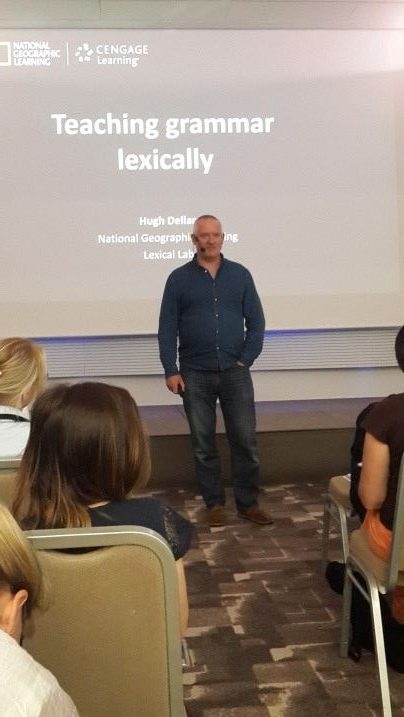
Grammar is an umbrella term for a large number of separate or loosely related language systems. What is Grammar?
- is types of words and their functions
- rules and forms – few/ a few / much/ many…
- slots that can be filled with words
- syntax and the position of words in sentences
- tenses and verb phrases
He emphasised that teachers should not only focus on grammar as rules and patterns, rather they should see grammar as….
- Vocab and phrases such as: What is it like? Or I wouldn’t bother if I were you.
- Phrases providing slots: What are you doing…tonight?
- Collocations (including prepositions)
- Patterns: Just because I am a teacher it doesn’t mean I’ve failed at everything else.
- Discourse: While some believe that…. It nevertheless seems true that…
- Genre dependence
What are the classroom implications of all this?
- The road is long: It’s learned slowly… from input. Usually whole sentences are better to deal with in class.
- Explanation and learning rules
- Context & eliciting
- Noticing
- Guided discovery / inductive learning: turning rules into questions.
- Two-way translation → but sentences are better. E.g., I haven’t seen you for ages.
- Cloze exercises
- Gap fill / choose the form
- Drills
- Negotiate meaning and correct (reformulate / interrupt / point out / and teach)
PLENARY 4: The fourth plenary was Philip Kerr’s Translation, technology and the Language Classroom:
He started with a question: how much L1 do you use in class? He said that people always lie about this because it used to be bad to translate words or sentences in class. The following is a common belief: The best way to learn English is in a natural way where English is spoken or through English. Some believe that teachers need to use the target language only in class because…
- Translation is not an important skill
- Time spent L1 is not spent using the target language
- Learners need to think in the target language
- Translation promotes fossilization
He emphasized that teachers need to allow L1 in class because of…
- research
- learning objectives
- psychology of learning
- learner preferences
- efficiency
- technology
PLENARY 5: The fifty plenary was Prof. Stephen Krashen’s reading Hypothesis:
Krashen emphasized the fact that reading is an important skill and needs to be taught in the family. He believes that skill building hypothesis is only successful with people who like it which is about 5 % of the people and those people become language teachers. The other 95 % hates it.
“Comprehensible input has to be interesting, only then learning will take place”
Reading will take people to the highest levels. Therefore,…..
- parents have to read stories to their kids
- people need to read whatever they want. Teachers should do silent reading for 10 minutes in class every day.
- children have to solve problems so they need to do free voluntary readings.
WORKSHOP: The most interesting workshop was Alex Cann’s workshop entitled “Giving Effective Feedback and Coaching Team Members”.
He started his workshop with two questions:
What is effective feedback?
What does it look like?
Feedback should be developmental and motivational because it helps to build competence and build confidence. We need to follow the following acrostic:
BOOST = balanced / objective / observed / specific and timely
The PRISM model is another one: Permission / reality / impact / solutions and make it happen.
Permission: Asking when to give feedback
Reality: what does their performance look like?
Impact: Impact of their performance.
Solutions: how to improve their performance
Make it happen: what actions will they take?
He finished his workshop with some Feedback Tips:
- Send feedback questions ahead of time
- Start using a log / feedback book
- Mention specific behaviour – what they did? When they did it? And comment like this: when you do this…. this happens/ I feel like this.
- Start with motivational feedback “and” if you had done this… it would have been better, rather than “but”
- Remember to “ask” rather than “tell” by using target questions.
- Use feedback sessions to build relationships, strengthen channels of communication, improve performance, motivate them.
These are my reflections from the symposium. I would like to thank Nergis and all of you for your valuable feedback and giving me the opportunity to attend a great conference like this to gain a lot of new insight and share my experience with other ELT teachers.
Some photos from the symposium and Brno:
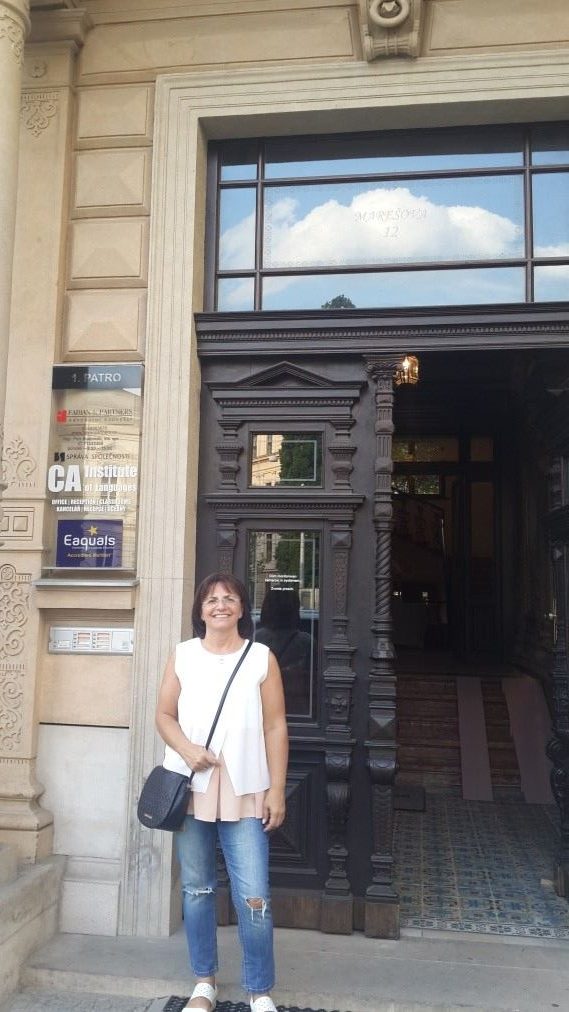
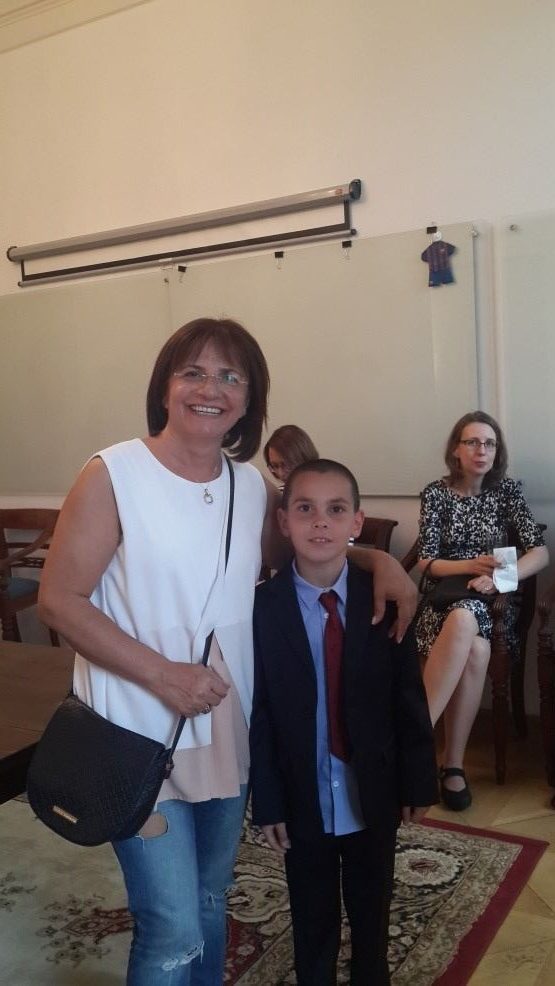
CA Institute and Erik Dostal’s son at the reception.
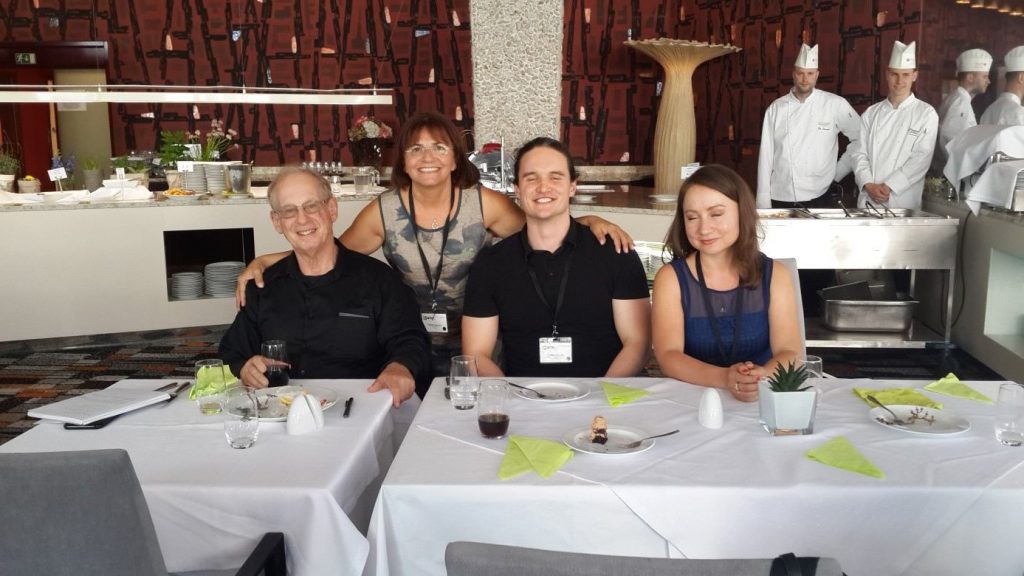
Luch with Prof Stephen Krashen, Cormac and Larissa.
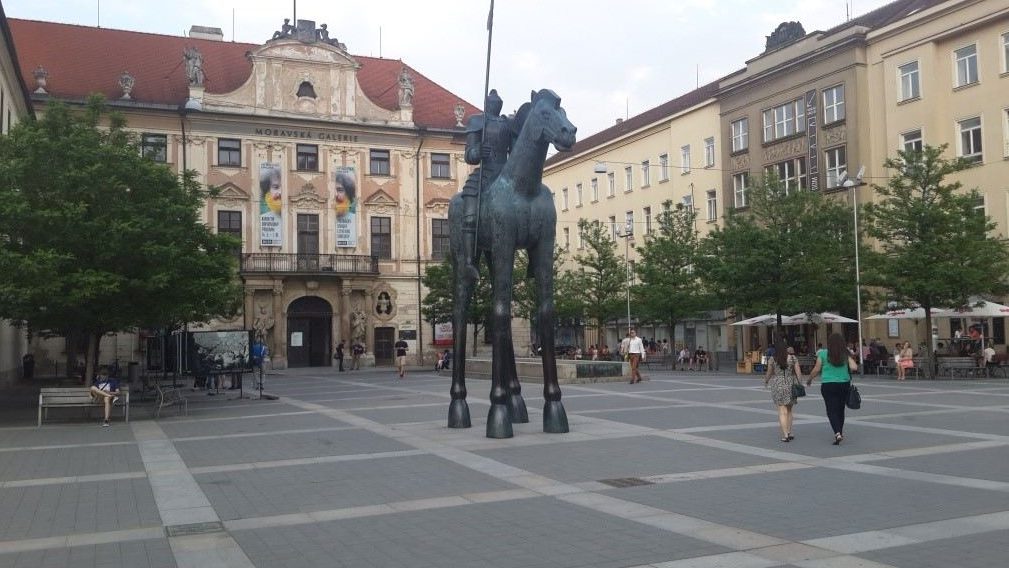
City Centre of Brno. Morevska Galerie which is the second largest art museum in the Czech Republic, established in 1961.

Petrov Cathedral in Brno established at the end of the 14th Century.

The view of the old city from the Royal Castle of Brno.
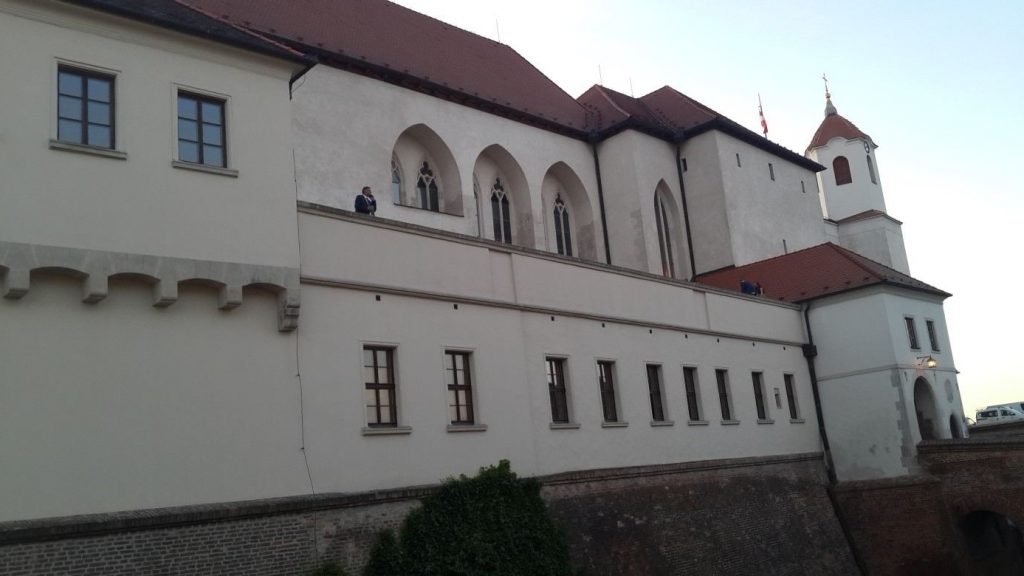
The royal castle of Brno established in the 13th Century.

Leave a Reply